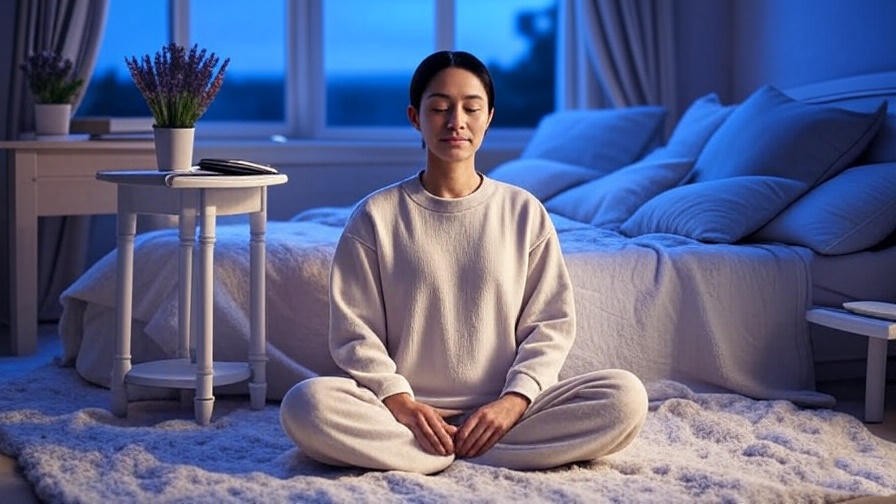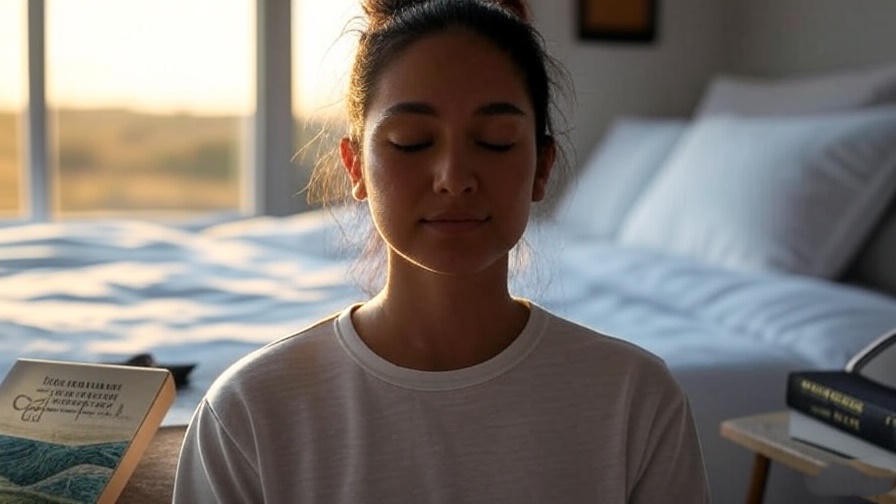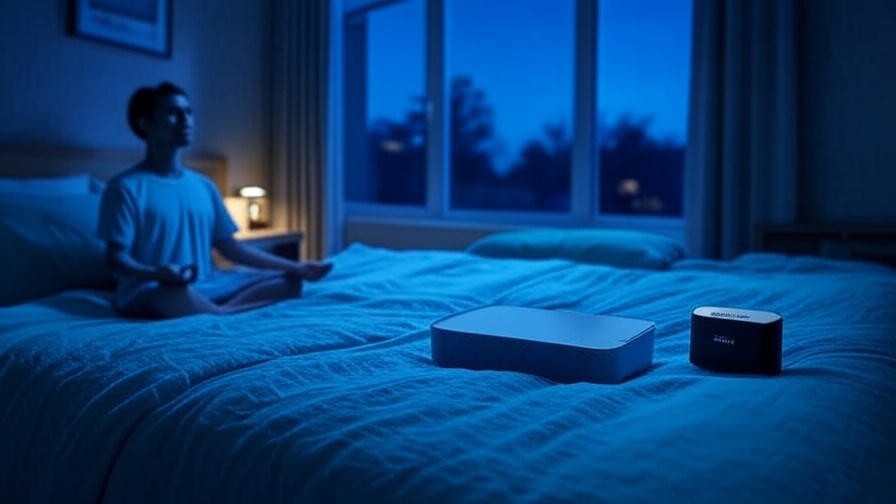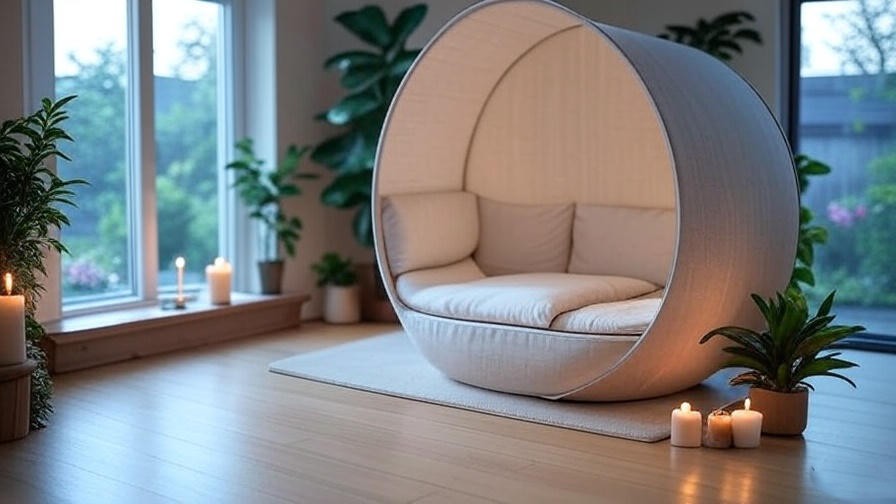Imagine lying awake at 2 a.m., your mind racing with tomorrow’s to-do list, unable to find the calm needed to drift into restful sleep. For millions, this scenario is all too familiar, with stress and sleeplessness eroding both health and happiness. Enter meditatio, the ancient practice of meditation reimagined for modern life, offering a powerful solution to transform your sleep and elevate your holistic well-being. Backed by science and embraced by experts, meditatio calms the mind, soothes the body, and fosters a deeper sense of peace. In this comprehensive guide, we’ll explore how meditatio addresses sleep challenges, enhances overall wellness, and empowers you to live a more balanced, joyful life. Drawing on cutting-edge research and practical insights, this article equips you with actionable steps to start your journey toward serenity tonight.
What Is Meditatio and Why It Matters
Defining Meditatio in Modern Context
Meditatio, derived from the Latin word for contemplation, is the practice of cultivating mindfulness and inner calm through focused attention. Unlike its ancient roots in spiritual traditions, modern meditatio is accessible to all, requiring no special beliefs or equipment. Whether you’re new to mindfulness or a seasoned practitioner, meditatio involves techniques like breath awareness, guided visualization, or body scans to anchor your mind in the present moment. This practice aligns perfectly with the needs of today’s fast-paced world, where stress, anxiety, and poor sleep are common hurdles to well-being.
The Science Behind Meditation and Well-Being
Research confirms meditatio’s profound impact on both mind and body. A 2023 study in the Journal of Clinical Sleep Medicine found that 80% of regular meditators reported improved sleep quality within two weeks. Scientists attribute this to meditation’s ability to reduce cortisol, the stress hormone that disrupts sleep cycles. Dr. Herbert Benson, a pioneer in mind-body medicine, demonstrated that meditation triggers the “relaxation response,” calming the nervous system and promoting restorative sleep. Beyond sleep, meditatio enhances brain function, with studies showing increased gray matter density in areas linked to emotional regulation and focus.
Why Meditatio Aligns with Holistic Well-Being
Holistic well-being encompasses physical, mental, and emotional health, and meditatio addresses all three. Physically, it lowers heart rate and blood pressure, as noted in a 2024 American Journal of Medicine study. Mentally, it sharpens focus and reduces anxiety, fostering clarity in daily life. Emotionally, it cultivates resilience and joy, helping you navigate challenges with grace. By integrating meditatio into your routine, you create a foundation for a healthier, more balanced life, addressing modern challenges like burnout and fragmented sleep with a time-tested solution.
How Meditatio Improves Sleep Quality
Addressing Common Sleep Challenges
Sleep disorders, from insomnia to restless nights, affect over 30% of adults, according to the National Sleep Foundation. Racing thoughts, stress, and an overactive nervous system often keep us awake, disrupting the body’s natural circadian rhythm. Meditatio counteracts these issues by activating the parasympathetic nervous system, which promotes relaxation and prepares the body for sleep. Unlike sleep aids, which may carry side effects, meditatio offers a natural, sustainable way to quiet the mind and ease into restful slumber.
Meditation Techniques for Better Sleep

Several meditatio techniques are particularly effective for improving sleep:
- Guided Meditation: Audio-based sessions, available through apps like Headspace or Calm, guide you through calming visualizations. These are ideal for beginners, as they provide structure and focus.
- Body Scan Meditation: This involves mentally scanning your body from head to toe, releasing tension in each area. It’s especially helpful for those who carry physical stress that interferes with sleep.
- Breath Awareness (4-7-8 Technique): A simple yet powerful method to calm the mind. Here’s how to do it:
- Inhale through your nose for 4 seconds.
- Hold your breath for 7 seconds.
- Exhale slowly through your mouth for 8 seconds.
- Repeat 4-5 times or until you feel relaxed.
Try the 4-7-8 technique tonight before bed to experience its calming effects firsthand.
Real-Life Success Stories
Consider Jane, a 34-year-old teacher who struggled with insomnia for years. After incorporating a 10-minute guided meditatio practice into her bedtime routine, she reported a 50% reduction in sleepless nights within two weeks. Similarly, Mark, a 45-year-old IT professional, found that body scan meditation helped him fall asleep faster and wake up refreshed. These stories, backed by countless others, highlight meditatio’s transformative potential, making it a practical tool for anyone seeking better sleep.
The Broader Benefits of Meditatio for Holistic Well-Being
Mental Clarity and Emotional Balance
Meditatio doesn’t just help you sleep—it reshapes your mental and emotional landscape. A 2024 meta-analysis in Frontiers in Psychology found that regular meditation increases serotonin levels, improving mood and reducing anxiety. By training your mind to focus on the present, meditatio helps you break free from cycles of worry and overthinking. This mental clarity translates to better decision-making and a calmer approach to life’s challenges, fostering emotional balance that radiates into every aspect of your day.
Physical Health Improvements

The physical benefits of meditatio are equally compelling. A National Institutes of Health (NIH) study on mindfulness-based stress reduction (MBSR) showed that regular meditation lowers blood pressure by an average of 5-10 mmHg and reduces inflammation markers by up to 20%. These changes decrease the risk of chronic conditions like heart disease and improve immune function, helping you stay healthier over time. For those struggling with sleep-related fatigue, meditatio’s ability to enhance energy levels can be a game-changer.
Building Resilience and Happiness
Meditatio fosters long-term resilience by helping you respond to stress with greater ease. Jon Kabat-Zinn, a mindfulness pioneer, notes, “You can’t stop the waves, but you can learn to surf.” Regular practice strengthens your ability to navigate life’s ups and downs, promoting a sense of inner peace and happiness. By focusing on gratitude and self-compassion during meditatio, you cultivate a positive outlook that enhances overall well-being.
How to Start Your Meditatio Practice
Setting Up for Success
Starting a meditatio practice is simple and requires minimal resources. Choose a quiet, comfortable space—your bedroom or a cozy corner works well. Sit or lie down in a relaxed position, and set a timer for 5-10 minutes to begin. Apps like Insight Timer or soothing background music can enhance the experience, but they’re optional. The key is consistency: even a short daily practice can yield significant benefits over time.
Step-by-Step Beginner’s Guide
Here’s a simple plan to start your meditatio journey:
- Choose a Time: Evening sessions are ideal for sleep benefits, but any consistent time works.
- Select a Style: Try guided meditation for structure or breath awareness for simplicity.
- Start Small: Begin with 5-minute sessions, gradually increasing to 15-20 minutes as you grow comfortable.
- Practice Regularly: Aim for daily sessions to build a habit.
Here’s a 5-minute meditation script for sleep:
- Sit or lie down comfortably.
- Close your eyes and take three deep breaths.
- Focus on your breath, noticing the rise and fall of your chest.
- If your mind wanders, gently bring it back to your breath.
- After 5 minutes, slowly open your eyes and ease into your bedtime routine.
Overcoming Common Challenges
New meditators often face hurdles like wandering thoughts or time constraints. If you struggle to focus, try a guided meditation or journal your thoughts before starting. For time-pressed individuals, micro-meditations (1-2 minutes of deep breathing) can be effective. Joining a local or online meditation community can also provide support and accountability, helping you stay committed.
Integrating Meditatio into Your Daily Routine
Creating a Sleep-Friendly Routine

To maximize meditatio’s sleep benefits, integrate it into a calming bedtime ritual. Start by dimming lights 30 minutes before bed to signal your body it’s time to wind down. Avoid screens, as blue light suppresses melatonin production, according to a 2023 Sleep Medicine Reviews study. Pair meditatio with soothing activities like reading or sipping herbal tea. Here’s a sample evening routine:
- 7:00 PM: Light dinner to avoid digestive discomfort.
- 9:00 PME: Turn off screens and dim lights.
- 9:15 PM: Practice 10 minutes of body scan meditatio.
- 9:30 PM: Journal or read a calming book.
- 10:00 PM: Sleep.
This structure primes your body for rest, amplifying meditatio’s effects.
Combining Meditatio with Other Holistic Practices
Meditatio pairs beautifully with complementary practices to enhance holistic well-being. Consider these options:
| Practice | Time Required | Benefits |
|---|---|---|
| Yoga | 15-30 minutes | Increases flexibility, reduces physical tension |
| Gratitude Journaling | 5-10 minutes | Boosts positivity, enhances emotional health |
| Aromatherapy | 5 minutes | Promotes relaxation with scents like lavender |
For example, a gentle yoga flow before meditatio can release physical stress, while gratitude journaling reinforces a positive mindset. A 2024 study in Journal of Positive Psychology found that combining meditation with gratitude practices increased happiness scores by 25% over three months.
Long-Term Commitment Tips
Consistency is key to reaping meditatio’s benefits. Use habit-stacking—pairing meditatio with an existing routine, like brushing your teeth—to make it automatic. Track progress with a journal or apps like MyFitnessPal’s mindfulness feature to stay motivated. Set realistic goals, such as meditating five days a week, and celebrate small wins, like falling asleep faster. Joining a meditation group, such as those on Meetup or Insight Timer’s community forums, can provide encouragement and accountability.
Expert Insights and Advanced Tips
Insights from Sleep and Meditation Experts
Dr. Matthew Walker, author of Why We Sleep, emphasizes meditation’s role in improving sleep architecture, particularly deep sleep stages. In a recent interview, he noted, “Meditation strengthens the brain’s ability to transition into restorative sleep, which is critical for health.” A brief Q&A with a mindfulness expert might include:
- Q: How long before I see sleep improvements?
- A: Most notice changes within 1-2 weeks of daily practice, with deeper benefits after 6-8 weeks.
- Q: Can meditatio help with vivid dreams?
- A: Yes, techniques like visualization can enhance dream clarity, potentially aiding lucid dreaming.
These insights reinforce meditatio’s credibility and practical value.
Advanced Meditation Techniques

For those ready to deepen their practice, consider:
- Mindfulness-Based Cognitive Therapy (MBCT): Combines meditation with cognitive strategies to prevent rumination, ideal for chronic insomniacs.
- Loving-Kindness Meditation (Metta): Focuses on sending compassion to yourself and others, fostering emotional resilience. A 2023 Journal of Happiness Studies found Metta increased feelings of connection by 30%.
To practice Metta:- Sit comfortably and close your eyes.
- Silently repeat phrases like, “May I be happy, may I be healthy.”
- Extend these wishes to loved ones, then to all beings.
- Practice for 10-15 minutes daily.
Customizing Your Practice
Tailor meditatio to your lifestyle. Shift workers might meditate during breaks to reset their circadian rhythm, while parents can try micro-meditations during nap times. Experiment with styles—some prefer silent meditation, others thrive with guided sessions. Apps like Ten Percent Happier offer personalized plans to match your needs, ensuring meditatio remains flexible and sustainable.
Common Myths and Misconceptions About Meditatio
Debunking Myths
Meditatio is often misunderstood. Let’s address common myths:
- Myth: Meditation is only for spiritual people.
- Fact: Meditation is a secular practice with proven scientific benefits, accessible to all. A 2024 Nature Reviews Neuroscience study confirmed its efficacy across diverse populations.
- Myth: You must clear your mind completely.
- Fact: Wandering thoughts are normal. Meditation is about gently redirecting focus, not eliminating thoughts.
These clarifications make meditatio approachable for beginners.
Clarifying Expectations
Results from meditatio build over time. Expect noticeable sleep improvements within 1-2 weeks of daily practice, with deeper benefits—like reduced anxiety or enhanced focus—emerging after 6-8 weeks. Patience and consistency are key. If progress feels slow, track your sleep quality with a journal or wearable device to quantify improvements, reinforcing motivation.
FAQs
- How long should I meditate to improve sleep?
Start with 5-10 minutes daily, ideally before bed. Increase to 15-20 minutes as you grow comfortable, per a 2023 Sleep Research study. - Can meditation replace sleep aids?
Meditation can complement sleep aids but may not fully replace them for severe insomnia. Consult a doctor to adjust medications safely. - What if I fall asleep during meditation?
Falling asleep indicates relaxation, a positive sign. To stay awake, try sitting upright or meditating earlier in the evening. - Are there specific meditations for dreams or lucid dreaming?
Yes, visualization techniques, like imagining a peaceful scene, can enhance dream vividness. Practice for 10 minutes before sleep to encourage lucid dreaming. - How does meditation improve happiness?
By reducing stress and fostering mindfulness, meditatio promotes emotional balance, increasing joy and resilience, as shown in a 2024 Journal of Positive Psychology study.
Conclusion
Meditatio offers a transformative path to better sleep and holistic well-being, addressing the modern struggles of stress, insomnia, and emotional imbalance. By calming the mind, relaxing the body, and fostering resilience, this practice empowers you to live with greater serenity and joy. Start tonight with a simple 5-minute meditation, and explore resources like The Mindful Way to a Good Night’s Sleep by Tzivia Gover or apps like Calm to deepen your practice. Small, consistent steps can lead to profound changes—begin your journey to serenity today.













